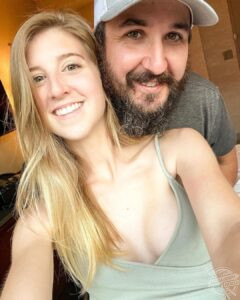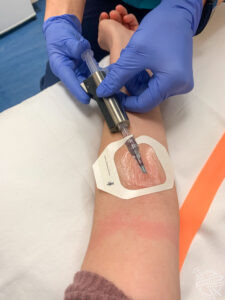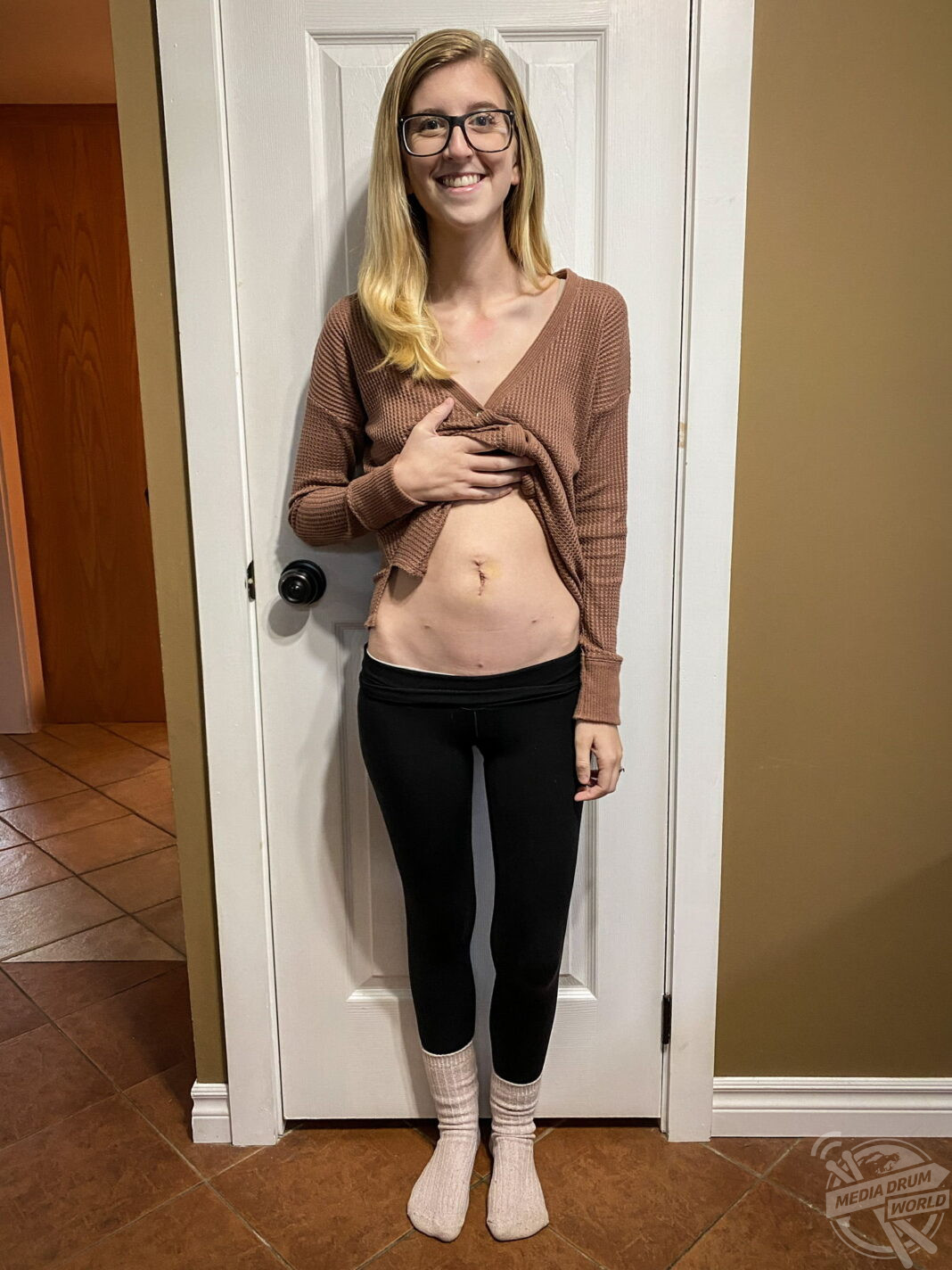**EXCLUSIVE**
By Akanksha Soni
THIS MUM says she was so distressed when doctors misdiagnosed her cancer for irritable bowel syndrome that her breast milk dried up and she weighed just SIX-STONE.
Licensed Practical Nurse, Kady Wheeler (25), from Yarmouth, Canada was in her early years of high school when she started exhibiting symptoms of irritable bowel syndrome (IBS) such as abdominal cramping and struggling to make it to the bathroom.
Kady had a lot of her friends on speed dial that lived in town and she’d run to their house in an emergency.
IBS is a common condition that affects the digestive system and can cause symptoms like stomach cramps, bloating, diarrhoea and constipation. These tend to come and go over time, and can last for days, weeks or months at a time.
When Kady went to the doctor they diagnosed her with IBS and she began ‘avoiding’ certain foods in an effort to control the condition.
It was after the birth of her second child in 2020, that her symptoms worsened so much that she was unable to make it to the bathroom in her own home and her breast milk dried up.

“While being on maternity leave with my second baby I started with severe abdominal cramping, facial flushing, and going to the washroom more than eight times a day,” says Kady.
“I was ninety lbs and could not gain weight. I was unable to make it to the bathroom in my own home and was tracking what I ate and there was no correlation.
“I weighed 89 lbs at my lowest at 24, right now I weigh 114 lbs at my healthiest, I only knew I was pregnant both times because I hit more than 100 lbs.
“I went back to my doctor and got blood work, and was diagnosed with ‘severe IBS’.
“I asked for a colonoscopy, and the specialist thought there would be evidence of Crohn’s, a long-term condition where the gut becomes inflamed.
“However, just inside the valve to my small bowel (that you can’t test) they saw a tumour, took a biopsy and it came back as a Grade 1 Neuroendocrine tumour.
“A neuroendocrine tumour is a rare tumour that can develop in many different organs of the body.
“I underwent an ileocecal resection on November 10, 2020, to surgically remove parts of the small bowel.
“After that, I needed to have a special scan done, called an octreotide scan to see if there were any other cancerous cells which came back clear.
“Throughout my journey, I was so anxious I did not want to have surgery and leave my ten-month-old and three-year-old home.
“I was breastfeeding at the time and felt guilty because the stress/medications made my milk dry up.”
Kady was diagnosed with a Grade 1 Neuroendocrine tumour, where the cancerous cells divide slowly.
The tumour had spread to three lymph nodes in her bowel, her doctors removed 19 total and her tumour with them.

Despite the ups and downs and years of discomfort and difficulties due to her misdiagnosis Kady was glad to have an explanation for her symptoms.
“I felt a wide range of emotions, even though Neuroendocrine tumour (NET’s) can be a terrifying diagnosis,” says Kady.
“I felt relieved to finally have an answer and an answer that felt correct.
“But I was also terrified because I had no idea if that was the first tumour starting to grow or there were more in other areas.
“I had a family, I was young.”
Kady believes her family’s undying support made her cancer journey all the more bearable.
“My children are almost too young to realize, or truly understand why I had surgery which I am thankful for,” Kady says.
“My husband was stressed, worried and upset but he was really my rock through it all. I’m so lucky to have that support system.
“There were definitely times I was not positive, that part I only shared with very close friends and family, but I also didn’t want the diagnosis to take over my life and wanted to stay positive for my children.
“I honestly think it has made us stronger. We’ve dealt with a lot that most never have to deal with, at an early stage in marriage.”
Kady wishes people would learn from her mistakes and not accept their first diagnosis if it does not fit.

“It’s really easy to just go with the first diagnosis that “mostly” fits, but to really look at things and especially with IBS really track your intake and see if there’s a correlation,” Kady says.
“Refer to a specialist if you aren’t a hundred per cent sure.
“I think there’s a lot of cracks in the healthcare system all over, you really need to advocate for yourself and your loved ones.
“You can feel if something isn’t right.”
ENDS









